I wanted to jump on the vinyl resurgence bandwagon – but in a more meaningful way than buying Wirecutter’s recommendation. Here’s how I restored my grandfather’s LAB-1100.
If you’re interested, this is a great entry-level turntable: it’s semiautomatic with a built-in phono stage (and RIAA equalization). That’s everything you need to get started playing records – you can pick one up on eBay and renew it for cheap.
Process
I used a USB mixer to record audio samples at each stage of the renewal, the RPM iOS app to track changes in spin speed (these apps use your phone’s accelerometer as a modern alternative to stroboscopes), and Madeon’s Adventure as my sample album.
Here’s the starting point - the needle scratches all the way into the 11th track, Pixel Empire, and plays with significant distortion and skipping:
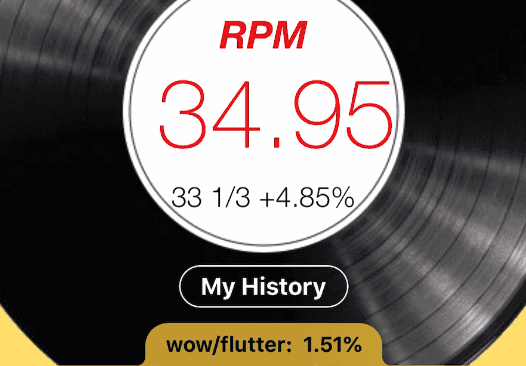 RPM app reports spinning 4.85% faster than desired and 1.5% wavering
RPM app reports spinning 4.85% faster than desired and 1.5% wavering
There’s two main components that need replaced over time (~1000 hours playing): the stylus and, for belt-driven turntables, the belt.
Replacing the Stylus
The manufacturer recommended stylus replacement is the Audio-Technica ATN3600L (found in online manual).
There’s many great guides available on how to swap a stylus. The LAB-1100 manual has instructions on page 12:
Replacing the Belt
Turntable belts stretch over time, affecting the revolution speed and motor responsiveness:
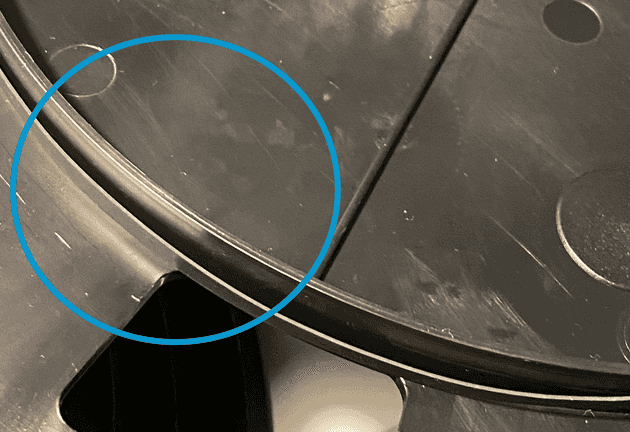 This over-stretched belt loosely hangs off the platter
This over-stretched belt loosely hangs off the platter
You can determine what kind of belt you need to by measuring the underside of the platter:
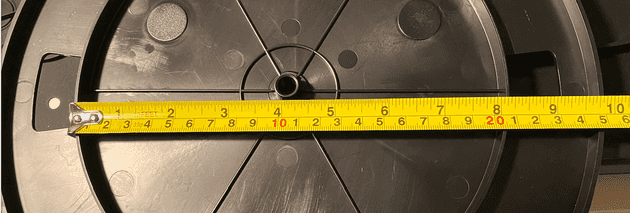 In this instance we’d search for a ~206mm belt
In this instance we’d search for a ~206mm belt
You may also be able to find a model-specific belt, like in the case of the LAB-1100:
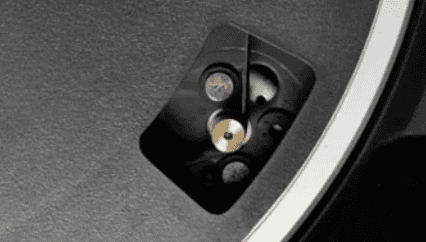 Wrap the belt around the platter and then loop it around the motor
Wrap the belt around the platter and then loop it around the motor
Fine-tuning the speed
After changing the belt and stylus, it’s sounding much better:
But a familiar ear will notice the song still sounds a bit faster than usual:
Turntables usually allow speed adjustment through knobs / potentiometers. I couldn’t find them on the LAB-1100 until I found this super helpful comment from Randy on YouTube:
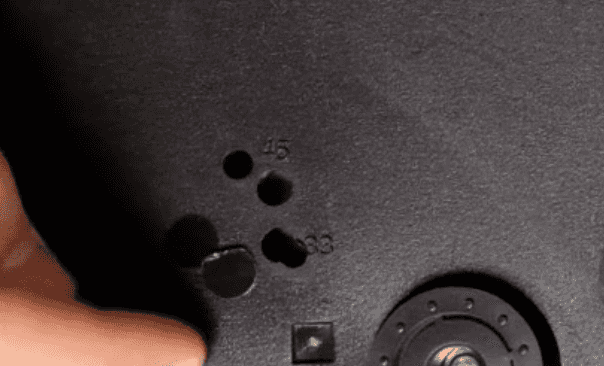 The speed adjusters hidden under black stickers
The speed adjusters hidden under black stickers
Using a screw driver to adjust the potentiometer through the “33” hole (33 1/3 RPM) will make the motor spin faster or slower.
Past the stickers, there’s also a foam barrier you must slip a screwdriver through in order to be able to turn the potentiometer. It feels strange to blindly jam a screwdriver in an electrical appliance; double check that it’s unplugged and use care when fishing around.
After several rounds of trial and error, I was happy to land within a half percent of 33 1/3 RPM:
At last, here’s how it sounds:





